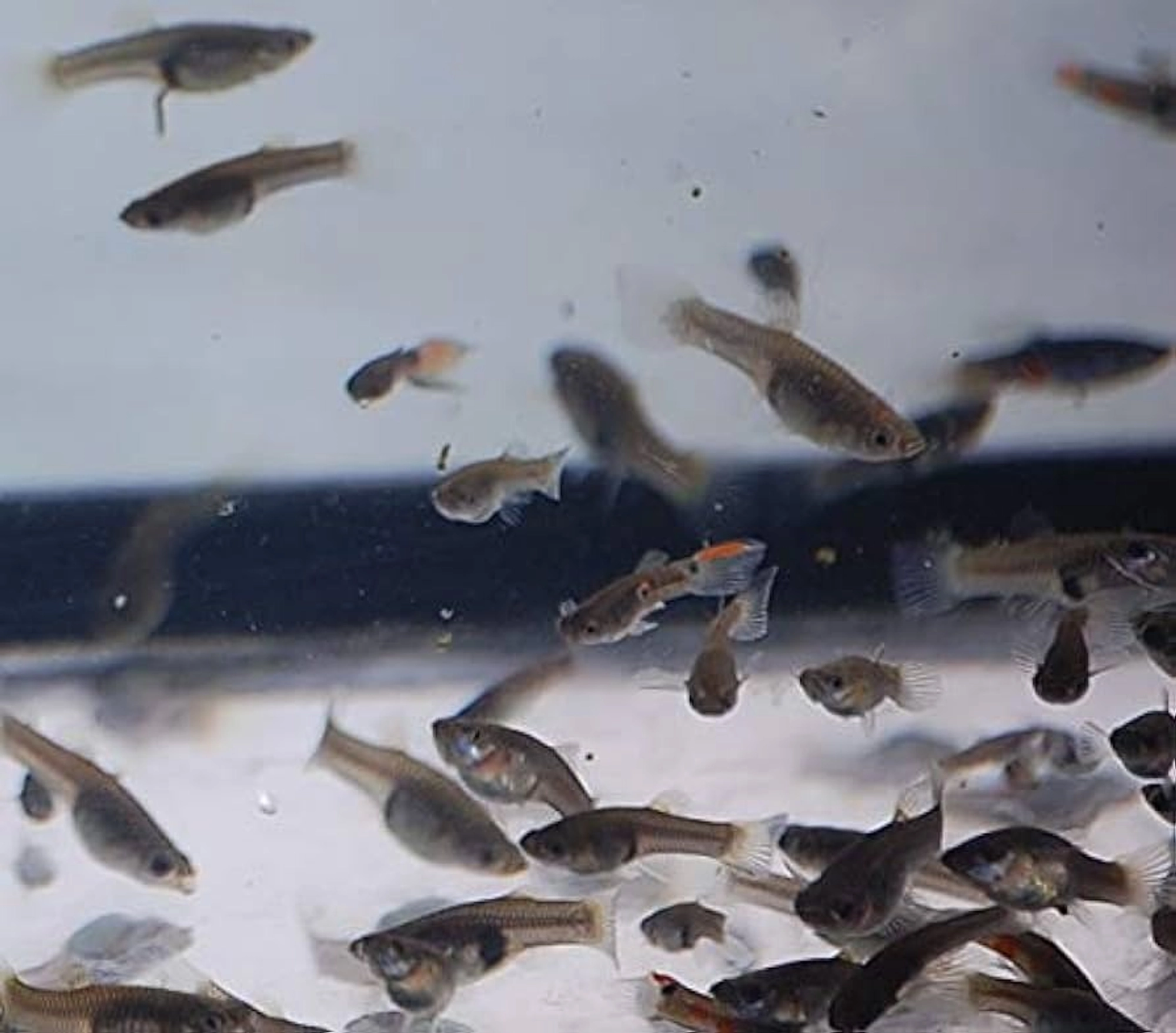

Product Details

Size
1cm - 1cm

Temperament
Peaceful
Detailed Product Description:
If you're looking to provide your predator fish with a natural and nutritious diet, Guppies Feeder Fish are an excellent choice. These small, live fish can be a valuable source of nutrition for carnivorous and predatory fish species. In this comprehensive product description, we'll explore the world of Guppies Feeder Fish, covering their ideal water conditions, compatible tank mates, feeding habits, and responsible care guidelines to ensure the well-being of both the predator fish and the feeders.
Water Conditions:
- Temperature: Maintain the water temperature between 72-82°F (22-28°C) to create a comfortable environment for both the predator fish and the guppies.
- pH Level: Aim for a neutral to slightly alkaline pH, typically between 7.0 and 7.5.
- Water Quality: Regular water changes are essential to keep ammonia and nitrite levels low, ensuring the health of all fish in the aquarium.
- Aquarium Setup: Provide hiding places, plants, and suitable décor for the guppies to minimize stress.
Tank Mates:
- Guppies are often used as feeder fish for predatory species, including larger cichlids, pufferfish, and some catfish. However, keep the following considerations in mind:
- Predator fish should be of an appropriate size to consume guppies.
- Avoid housing guppies with overly aggressive or fin-nipping species to prevent harm to the feeders.
Feeding Habit:
- Guppies Feeder Fish are a live food source, and they can elicit natural hunting behaviors in predator fish. Here's how to incorporate them into your feeding routine:
- Feed guppies as part of a varied diet, not as the sole food source, to ensure a balanced nutritional intake for the predator fish.
- Observe the predator's response to live prey, and adjust the quantity as needed. Overfeeding can lead to health issues.
Care and Maintenance:
- Proper care and maintenance are crucial for the health and well-being of both the predator fish and the feeder guppies:
- Quarantine and observe guppies for signs of disease before introducing them to the aquarium.
- Keep guppies in a separate tank, ensuring their health and cleanliness to prevent the transfer of diseases to predator fish.
- Remove any uneaten guppies promptly to maintain water quality and prevent stress to the live feeders.
- Maintain excellent water quality and perform regular water changes to keep the aquarium environment stable.
Responsible Feeding:
- Using live feeder fish raises ethical considerations, as it involves potential harm to the feeders. To feed responsibly:
- Ensure that guppies are healthy and free from diseases.
- Feed an appropriate quantity to prevent unnecessary suffering.
- Consider alternative, ethically sound feeding methods, such as high-quality pellets, frozen foods, and live food cultures.
In conclusion, Guppies Feeder Fish can be a valuable addition to your aquarium as a source of live nutrition for predator fish. However, their use should be approached with responsibility and ethical considerations. Always prioritize the well-being of both the predator fish and the feeder guppies to create a harmonious and healthy aquatic environment.
Guppies Feeder fish
Product Options
200 pcs
Delivery
Aquarium Fishes, Tanks & Supplies From The Fish House Yishun Chenchuru


 SG
SG



